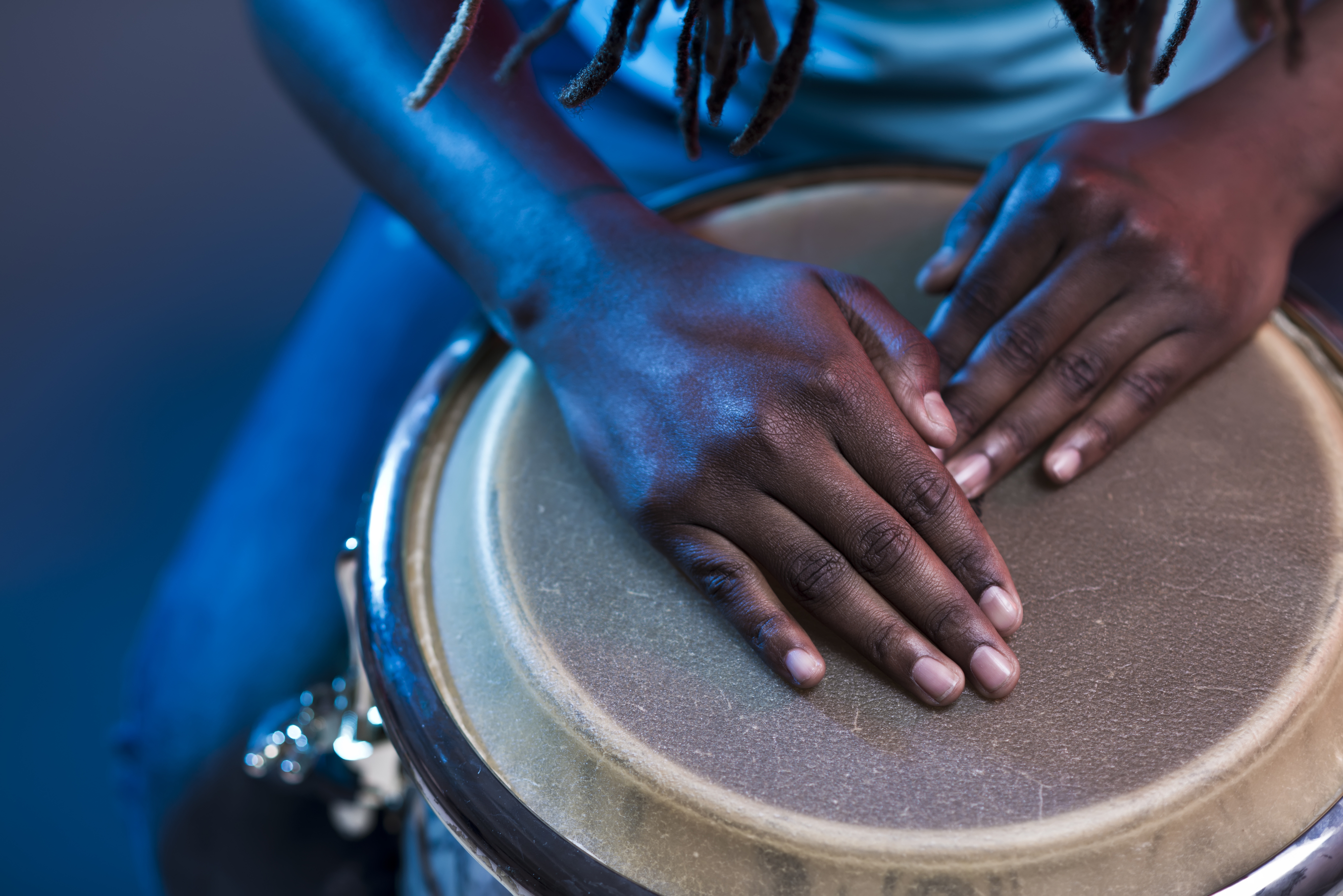Drum Circles: The Therapeutic Effect of Drumming

It was a little over a year ago. I had made a few “out of character” decisions, and I was eager to do something to gain mental clarity. This was not anything unusual. From meditation retreats, yoga binges, to poetry circles, I have done it all. I tend to have a mini-life crisis that leads me to try something new. This time, it would be a drum circle.
Using my Meetup app on my phone, I realized there were two hours before the drum circle started. Suddenly, I remembered I did not own a drum. In panic mode, I grabbed my phone and texted my musician friend Mike.
“Hey Mike, do you have a drum I can borrow for a drum circle,” I asked.
“Um. I’m a musician. Of course, I have a drum. Come over,” he replied.
Mike lived about five minutes away from the drum circle location, so I was in luck. I came over, and we chatted a bit before I dug through his collection of musical instruments. He did have a drum, but it was not the standard African hand drum that people frequently used in drum circles. It was a bongo drum. Still, I figured it would do.
I made my way toward the park where the drum circle was being held and found the group of over-smiley eager participants sitting on the freshly cut lawn. Here we go, I thought to myself. The group had already started their rhythmic drumming, so I quietly assembled myself within the circle.
The group practiced varying patterns of drumming. I started off slowly, patting lightly as not to interrupt the flow. Soon, I found myself picking up the rhythm. I began to hit harder on the drums. My mind was clear, and I could only focus on the rhythm of the drumming. After the two-hour long class, I found that my stress levels and anxiety were significantly lower than before the class. It was an experience that I was grateful to have at the time.
The Benefit of Drum Circles
Communal drum circles have been going on for thousands of years in various cultures and regions. An ancient treatment; drum circles are shown to have benefits for those struggling with addiction, depression, and other mental health issues. In fact, a study out of the U.K found that the benefits of communal drumming could offer hope for people struggling with depression. Researchers found that those who engaged with drumming fared better than the control group that attended social events without any dancing or music-making elements.
Drumming induces deep relaxation, lowers blood pressure, and is a fantastic stress reliever. It promotes the production of endorphins and helps the body release its morphine-like painkiller which can help in pain management.
Drumming has been shown to produce deeper self-awareness by re-energizing areas of the brain. The brain is composed of two cerebral hemispheres. When the logical left hemisphere and intuitive right hemisphere begin to pulsate in harmony, it can help bring more conscious awareness.
In addition to all the psychological benefits, drumming has been shown to boost the immune system. A medical study by cancer expert Barry Bittman, MD, revealed that drumming increases cancer-killing cells which help the body combat cancer as well as other viruses.
According to Dr. Bittman, “Group drumming tunes our biology, orchestrates our immunity, and enables healing to begin.”
The sound vibrations generated from drumming resonate through every cell in the body. Drumming could address the need of addicted populations by helping them learn to combat emotions in a therapeutic way without the use of drugs.
Truthfully, I never went back to that drum circle. Perhaps I will some day. Regardless, the experience helped explain my thoughts and reaffirm things that I wanted to focus on long term.
Trying something new like a drum circle could be an excellent tool in your recovery process. It is never too late to change up your routine. Have you tried anything new recently? If you or someone you love is struggling with substance abuse or addiction, please call toll-free 1-800-777-9588.
Author: Shernide Delva
